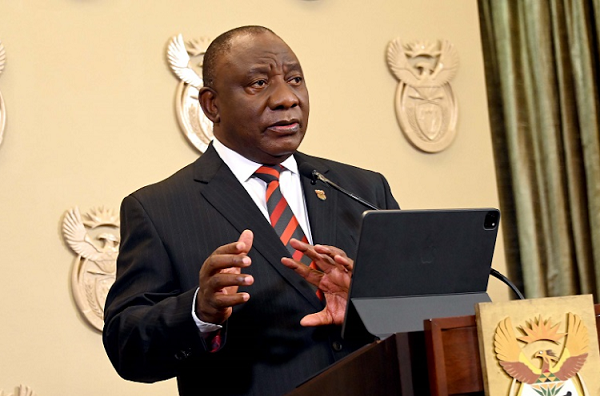

Founder: Turnaround Talk
Last week Thursday, Comair’s BRPs made the shocking announcement that they would be filing for a provisional liquidation after investors were unimpressed by the future strategy that was provided to them by Comair CEO Glen Orsmond and the Comair board.
Even if the company benefitted from the fact that it owned 40% of the industry’s capacity, the Covid-Pandemic – and alleged years of mismanagement – were stumbling blocks that the company’s BRPs could not look past.
Unfortunately, as with every rescue that gets turned into a liquidation, the major victims become the company’s employees. There were already grave concerns about the payment of salaries leading into what was a torrid dramatic week for the airline; the writing is now on the wall for employees who may never receive their full salaries.
A recent article by EWN takes a closer look at this. Subheadings were inserted by Turnaround Talk.
Comair business rescue process a sham – NUMSA
The article points out that the National Union of Metalworkers South Africa (NUMSA) said that Comair workers were now paying the price for the mismanagement at the company.
The airline operator announced that it had been grounded for good as business rescue practitioners launched a court bid to have Comair liquidated.
Numsa has come out strongly against the move.
The article adds that the union’s spokesperson, Phakamile Hlubi-Majola, claims that Comair’s business rescue process was a sham.
“The dominant narrative in South Africa is that the private sector is more efficient and can do better than the state at managing entities. However, Comair is a perfect example that this is simply not true. The airline was totally mismanaged to the point of collapse.”
Comair funding taps ran dry
The EWN article points out that Comair business rescue practitioner, Richard Ferguson, said that despite their best efforts they were unable to secure the capital required for the airline to resume operations.
“We have done our best to secure the funding that was necessary, but unfortunately, we were unable to do so, and we had no option but to lodge the application. It is obviously an extremely sad day for the company, its employees, customers and the South African aviation industry.”
Comair was placed under business rescue in May 2020.
The company said despite the Rescue Consortium investing R500 million for a 99% share equity, it, unfortunately, faced unforeseen headwinds.
This included three further Covid-related air travel lockdowns, the suspension of the company’s air operator’s certificate in March this year, and significantly high fuel prices in the past five months.

Photo By: News24 and Canva
DA weighs in by pointing the finger at Government
This is an important year for the African National Congress. The President of the country is under pressure following the saga at this Phala Phala farm and there are significant reports of continued corruption coming from the party.
The ANC has its policy conference in July and its elective conference in December where a new party president will be elected. it makes sense that opposition parties will take every opportunity they can to highlight the ruling party’s short comings.
A EWN article points out that the Democratic Alliance (DA) has blamed the Comair liquidation on what is calls “government’s inconsistency and careless manner in the closing and opening of the country’s borders”.
Comair, which operated British Airways and Kulula, announced on Thursday that it had been grounded for good as business rescue practitioners launched a court bid to have the operator liquidated.
The DA said although the liquidation of the two airlines was partly caused by Comair themselves, Government’s decision to extend the closure of borders during previous lockdowns was to blame.
Stark contradiction
The party said the liquidation of Comair was in stark contradiction to President Cyril Ramaphosa’s address to Parliament on the presidency vote on how government is reconstructing and steering the economy into recovery.
The DA’s Manny de Freitas said, “As a result, hundreds of Comair employees now join the millions of other South Africans in the ranks of the unemployed. We now have two less airlines competing in the air travel space. This will have an impact on our already vulnerable and decimated travel and tourism sector.”

Photo By; Government
Difficult situation
The coming weeks will be a difficult time for Comair employees as they not only have to find new jobs, but they will be hoping for a good outcome of the liquidation which will see them get as much value as possible. This is a significant blow for the business rescue profession which is being scrutinised and criticised for the low success rate when it comes to the implementation of business rescue plans.
One feels that there is more to the Comair saga than what we have seen in the media. Reading between the lines, the airline did suffer from mismanagement but we will not know the extent of it. The fact that the airline was grounded earlier in the year by the Civil Aviation Authority of South Africa is proof of this mismanagement.
It is also difficult to judge whether there is any merit to the DA’s claims of Government being the reason why Comair was liquidated. Granted, Government did follow a draconian approach when it implemented the country’s lockdown on 24 March 2020. And the stop-start nature of the lockdown in the preceding two years didn’t help Comair’s cause. However, it is important to note that other countries followed a far stricter approach when it came to their lockdown. South Africa was far from the world leader. We cannot blame Government when Comair faced years of mismanagement before the Covid-Pandemic even arrived.
The turnaround profession is hoping for a good outcome of the liquidation. At the end of the day, the preservation of value when liquidation is the only outcome is what the industry is about.




